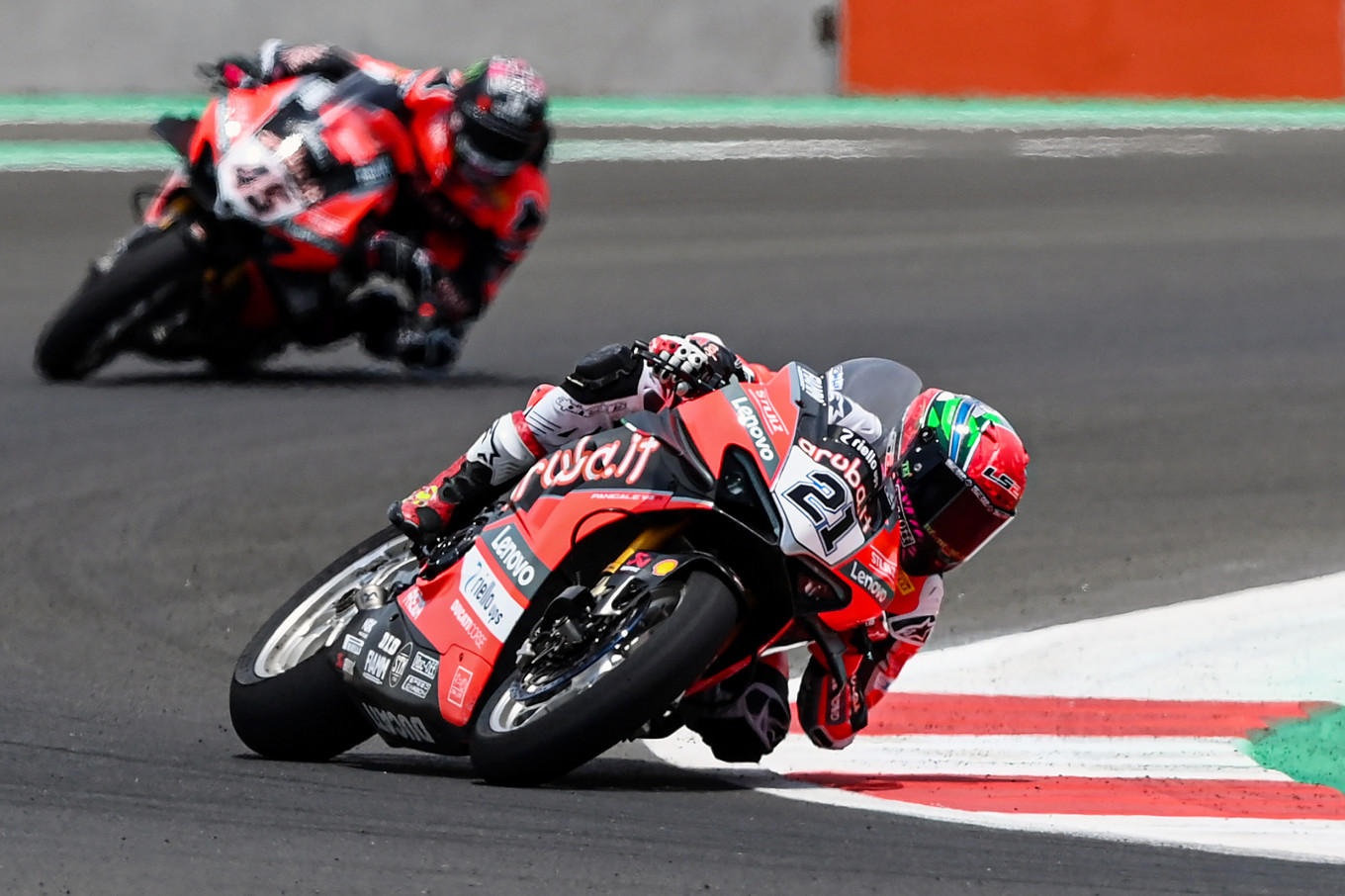Popular Reads
Top Results
Can't find what you're looking for?
View all search resultsPopular Reads
Top Results
Can't find what you're looking for?
View all search resultsRoaring into world circuits
When we decide to go global, we must meet international standards, nothing less will do.
Change text size
Gift Premium Articles
to Anyone
T
he World Superbike event at the Mandalika circuit on Lombok Island last week marked Indonesia’s re-entry into the international race circuit after a 24-year hiatus. Perfect timing, too. Southeast Asia’s largest economy, a middle-income country and the 16th largest economy in the world, Indonesia must build its posture as a global player in all fields, from diplomacy to security, economy and culture, and sports too.
Indonesia showed its mettle when it hosted the Asian Games in 2018. It is not giving up on its dream to host the Summer Olympics, now going for 2036 after losing the bid for 2032. The new street circuit in the lush coastal resort town of Mandalika is part of the nation’s confidence-building measures through sports, more specifically through motor races.
Indonesia started on this path in the 1990s with the Sentul motor circuit outside Jakarta hosting international races before the 1998 financial crisis abruptly ended them all.
The World Superbike event was a foretaste of things to come. In March, Mandalika will stage the MotoGP, the premier class of motorcycle road racing events.
Before then, Mandalika still needs plenty of fixing. This month’s event exposed some problems. While not major, added together they become quite significant, and could sabotage if not embarrass Indonesia’s international reputation. When we decide to go global, we must meet the international standards, nothing less will do.
The drainage system at the circuit failed to function properly, meaning that the race had to be delayed. Spectators had to walk through muddy pathways to reach the grandstands. This week, police uncovered a syndicate of thieves working in the circuit.
The Mandalika management had better soon resolve the land dispute with 40 families who have refused to move as they have not received any compensation. The conflict attracted the attention of Olivier De Schutter, UN Special Rapporteur for extreme poverty and human rights, who in March criticized the way the authorities had acquired the land for the race facility. The management managed to conceal the disputed land from spectators and TV cameras, but the problem is there and the families will continue to make noise.
There is also the problem of getting to Lombok for foreign visitors. They can fly there through Indonesian cities, particularly Jakarta and Bali, which is a half-hour flight, or Singapore and Kuala Lumpur. To live up to its international status, the Zainuddin Abdul Madjid airport must be linked with more direct international commercial flights.
Mandalika is part of the government’s campaign to promote new international tourist destinations, the so-called “next Bali”. Once a paradise for avid surfers, the area is now being developed into a luxury resort town. The race circuit is part of this development.
Hosting the MotoGP will bring prestige and status that make the huge investment outlay to build the facilities in Mandalika worth its while.
Equally important, Indonesia should invest more in its athletes to excel in all sports to be able to compete at international events, including the ones it hosts. We are not yet seeing young talents rising to the challenge. The last thing we want is to see Indonesia ending up as merely a good host.











